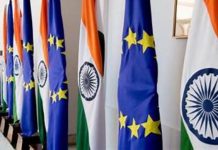Recent developments in Pakistan’s political landscape have once again stirred speculation about a possible thaw in relations between the military establishment and former Prime Minister Imran Khan. At the heart of the matter lies a series of covert yet significant contacts during the recent heightened tensions with India. According to credible sources, the establishment reached out to Imran Khan during the conflict and requested his cooperation in urging his supporters to back the military in this critical national moment. In a gesture of statesmanship, Khan complied, reportedly asking his followers to express solidarity with the armed forces through social media—particularly on X (formerly Twitter).
Soon after this display of cooperation, the ban on X in Pakistan, which had frustrated millions of users and curbed digital discourse, was lifted. The timing of this move was not lost on observers. While no official statement confirmed a quid pro quo, the sequence of events suggests an implicit understanding. If this is indeed part of a broader reconciliation effort, it must be welcomed and encouraged.
However, whether there is a formal “deal” or merely tentative backchannel communication, one fact remains indisputable: Imran Khan and his party, Pakistan Tehreek-e-Insaf (PTI), command a massive popular following. Ignoring or suppressing such a force within the country’s political framework is neither democratic nor pragmatic. For national stability and international credibility, the system must include, not exclude, its most influential stakeholders.
This newspaper has consistently argued that Imran Khan must be taken on board. No durable political or economic strategy can succeed in Pakistan if PTI remains at loggerheads with the establishment. Without inclusive political engagement, the state’s actions risk being perceived as partisan, and thus lose legitimacy in the eyes of the people.
If these contacts between Khan and the establishment mark the beginning of a new chapter, they should not be viewed with cynicism but with cautious optimism. Yet, one-off engagements in times of national emergency are not enough. There must be a sustained and sincere effort to bridge the trust deficit between PTI and the powers that be. Any reconciliation must be grounded in fairness, mutual respect, and the rule of law.
Looking ahead, one possible way to resolve the deepening political impasse is through fresh, transparent elections. For these elections to have credibility, PTI must be allowed to participate fully and fairly. Attempts to sideline or fragment the party will only exacerbate tensions and further alienate a large segment of the population.
In the final analysis, Pakistan’s future depends on unity, not division. If behind-the-scenes conversations are underway, let them evolve into a genuine political process. Deal or no deal, the imperative is clear: all political actors, including Imran Khan, must be treated justly and given a seat at the table. Only then can the country move beyond its current crisis toward a more stable and democratic future.

















